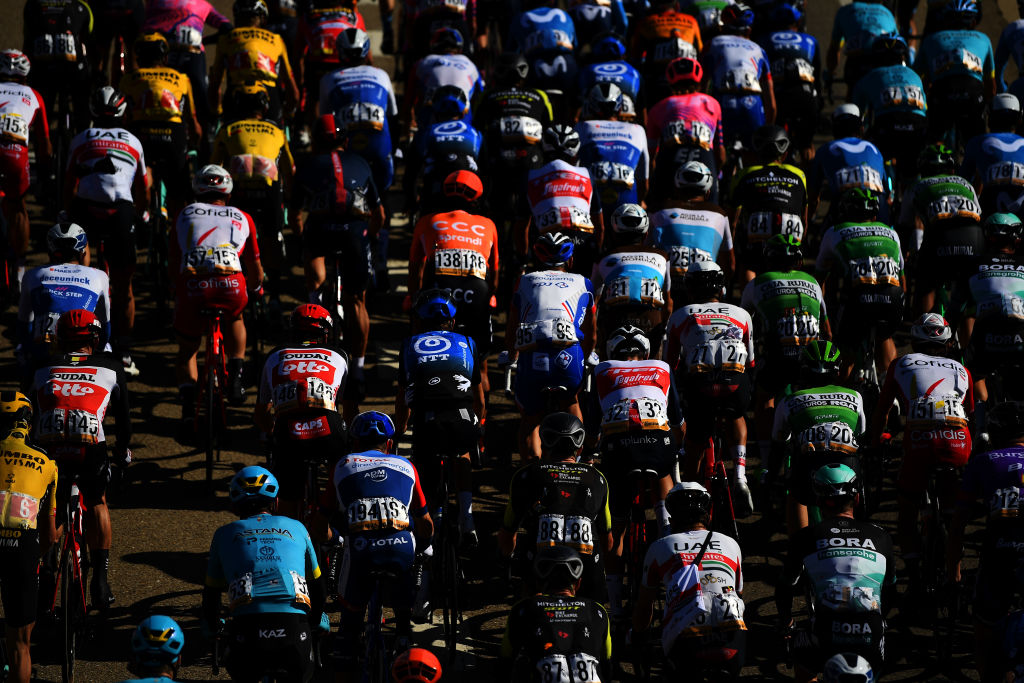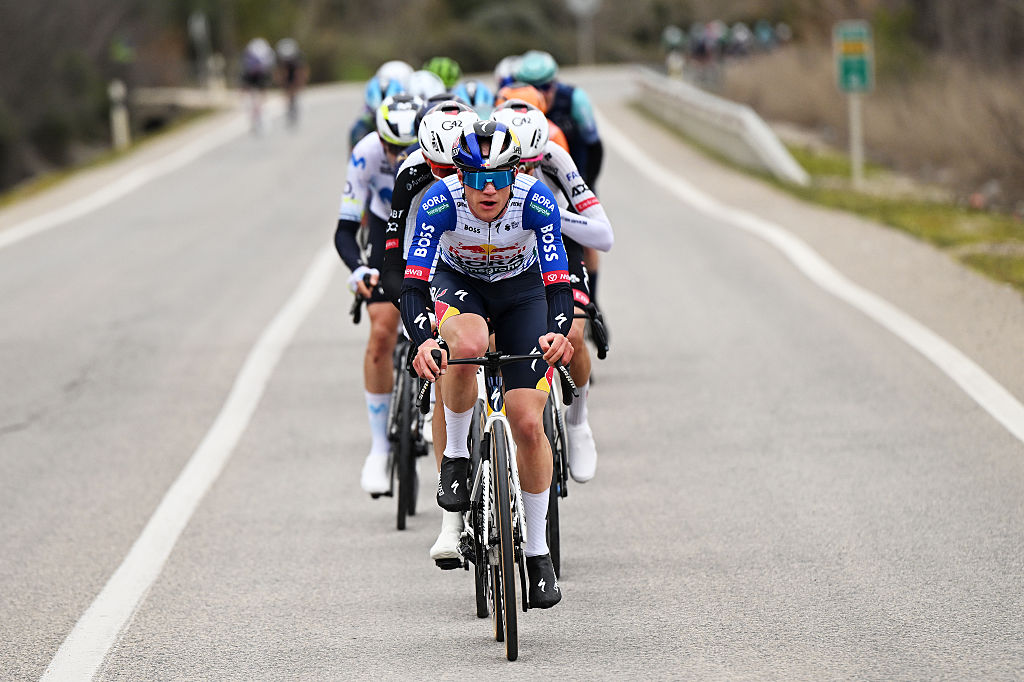Exclusive: Retired riders left stranded as CPA fails to meet payouts
Increased requests, structural problems and races failing to pay lead to major issues

The latest race content, interviews, features, reviews and expert buying guides, direct to your inbox!
You are now subscribed
Your newsletter sign-up was successful
The Cyclistes Professionels Associés (CPA) has failed to pay riders who retired at the end of the 2019 season their full allocation from the Transition Fund. The fund had been set up to help newly retired riders cope with the financial burdens of a post-cycling phase in their lives.
"The first and obvious reason is related with the increase of the riders asking for the end of the career Fund while the prize money haven’t increased," said the CPA. "The prize money has not increased for at least twenty years while cycling in recent years has transformed with more riders and teams."
Riders who successfully applied for the fund and retired at the end of the 2019 season were supposed to be paid a sum of €12,500 but former athletes have only been sent €3,000 so far, with the CPA riders’ union blaming the COVID-19 pandemic for the situation. The CPA has confirmed to Cyclingnews that 69 riders applied for the fund at the end of 2019.
However, the pandemic and the financial ramifications on 2020 should, in theory, have zero to little impact on the riders who retired at the end of the 2019 season because their payments should only relate to funds secured by the CPA up until the end of 2019.
The problems regarding payments, therefore, highlight the precarious financial management of the fund and how it is structured, as well as the worrying future facing the many riders who are likely to retire at the end of 2020. The CPA has not used the funds from prize money inappropriately but because of problems relating to how the funds and drawn and because of an increase in rider requests the current model has proved ineffective.
The CPA has managed the Career and Transition Fund since 2012, after taking over from the UCI, and its coffers are built up thanks to a five per cent deduction on all prize money from what the CPA determines as ‘international elite races’ during the season. The CPA takes an additional two per cent from all prize money in order to finance its own business.
According to the CPA website: “The sums thus accumulated can be disbursed to cyclists who end their careers, as compensation intended primarily to assist in their professional retraining.”
The latest race content, interviews, features, reviews and expert buying guides, direct to your inbox!
To apply for the fund, riders need to send in documents that prove they raced as a professional at either WorldTour or Pro Continental level for a period of five years or more. They must also provide proof of employment from previous teams. Riders with an anti-doping infraction within the previous five years are not eligible.
One of the biggest problems facing the fund is that not all race organisers pay the mandated five per cent levy on prize money to the CPA, with an annual shortfall of about 10 per cent - approximately €50,000, or enough to fund four riders a year - being the norm.
The CPA claims that, while more riders have looked to tap into the fund, the inability of all race organisers to pay the required five per cent has created a deficit of more than €2.8 million over the last few years. According to the CPA, some organisers have paid the full prize money directly to riders and teams on occasions, while the CPA also laments a withholding on tax and, in some instances, a complete lack of payment from some race organisers.
The CPA document states that the ideal number of retirees is around the 48 mark per season but that the situation became worse in 2019 when approximately 60 riders made claims. This pushed the CPA further into a deficit.
“Approximately 60 riders a year have applied in the previous few years and if the fund is supposed to be €12,500 then you need a reserve of €720,000,” one 2018 retiree told Cyclingnews.
“But if the grand sum of prize money is roughly €12 million and five per cent goes to the Fund then you only have €600,000, leaving the Fund with a missing €120,000 each year.”
The situation looks bleak for riders facing retirement this year because the CPA will struggle to recoup funds after a season blighted by race cancellations.
“Only about 60 per cent of funds for this year will be transferred because so many races will be canceled. They’ll never get that €720,000,” the source added.
On June 4, riders expecting payouts were emailed by the CPA and told that they would be sent the first payment of €3,000. However, the letter went onto explain that “the unexpected scenario generated by the global COVID-19 pandemic and the stopping of the races, as well as the high number of requests we received, motivated the adoption of this decision in accordance with the principle of solidarity that governs the Fund. All these elements force us to wait for the return to normality and to the positive development of the situation in order to be able to respond in the best possible way to all the requests.
“With the decision, the CPA intends to take into consideration all the parameters related to the exceptional situation we are going through, and, in particular, to take into consideration also the riders who may apply for the Fund in the near future and who, like you, have contributed for years, to its financing. In the face of uncertainties about the future we are living, the CPA must demonstrate fairness towards all the riders and adapt the payment teams appropriately.”
The letter adds that more details and updates would be provided in the coming months but Cyclingnews has learned – from speaking to several riders who applied for the fund – that they have not received any further information.
When approached for comment and asked if the riders from 2019 would receive more from the fund, the CPA told Cyclingnews: “yes they will receive more money, the sum will be decided at the end of the month of February after knowing the total requests from riders who are withdrawn [ed. retired] in 2020 and the money available in the case of the fund. Later there will be two more payments. The process has been extended with a view to extend the collection period.”
The CPA were not able to answer as to the amount of money riders who retired in 2020 would be able to receive until they knew the exact number of retirees at the end of the year but they added new regulations were being discussed in order to ensure that future - and current – retirees were paid fairly and adequately by the fund.
“There are many ideas in place beside a new regulation that consider a proportional payment related to the years of the professional career like, asking for the total prize money increase; asking for some contribution from the UCI; organising events and sponsorship and increasing the percentage due to the Fund.”
Cyclingnews also spoke to a rider who wished to remain anonymous, who retired in 2019 after a long and distinguished career that lasted over 10 years. He was one of the athletes who only received €3,000 this year, despite the fact that five per cent of the prize money fund was collected throughout his career.
“I don’t want to sound like an old fart but I think we’re owed about nine grand. It doesn’t make sense to use the pandemic as a reason because there wasn’t a pandemic last year. It just doesn’t seem fair because some of us were riders for a long time and it looks like they’ve not budgeted correctly but it needs to be consistent,” he said.
“Money has been going out of my prize money percentages for several years and for what? Where’s the money gone?”
The problem for the riders who retired in 2019 is that their portion of the retirement fund never existed because the CPA was structured to use the money raised in 2020 to pay 2019 retirees.
Daniel Benson was the Editor in Chief at Cyclingnews.com between 2008 and 2022. Based in the UK, he joined the Cyclingnews team in 2008 as the site's first UK-based Managing Editor. In that time, he reported on over a dozen editions of the Tour de France, several World Championships, the Tour Down Under, Spring Classics, and the London 2012 Olympic Games. With the help of the excellent editorial team, he ran the coverage on Cyclingnews and has interviewed leading figures in the sport including UCI Presidents and Tour de France winners.

